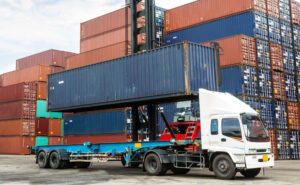Ghana economy said to earn $34m annually from transit corridor
 The Ghana’s Transit Corridor contributes $34 million annually to the nation’s economy, Ms Bismarck Benonita, the Chief Executive Officer of the Ghana Shippers’ Authority has said.
The Ghana’s Transit Corridor contributes $34 million annually to the nation’s economy, Ms Bismarck Benonita, the Chief Executive Officer of the Ghana Shippers’ Authority has said.
These are payments for services in handling of transit cargo from both Tema and Takoradi Ports, National Guarantor for the bond value, fees to Ghanaian Haulage truckers, operators of the electronic tracking device and for Freight Forwarders’ services.
Ms. Benonita explained several other entities including; fuel filling stations, hotels and restaurants operators benefited directly from transit trade and greatly boost the economy for enhanced socio-economic livelihoods of Ghanaians.
The CEO said this in a speech read on her behalf at the opening session of a day’s sensitization workshop on the contribution of the transit trade held at Techiman, the Bono East Regional capital, and attended by senior Police officers in the Bono and Bono East Regions.
It aimed at empowering the participants to enable them to contribute to making Ghana’s transit corridor the preferred one, and thereby, facilitating the growth of transit trade in the interest of national development.
Ms. Benonita said the anticipated increase in transit trade volumes had been factored in investments in the expansion of the Tema and Takoradi ports, saying statistics from the Ghana Ports and Habour Authority (GPHA) revealed transit traffic increased from 862,377 tonnes in 2016 to 1,500,000 tonnes in 2020, representing an increment of 74 per cent over the five-year period.
“It is in the light of these and more importantly the impact on the general economy that the Ghana Shippers’ Authority is championing the facilitation of transit trade through Ghana’s corridors”, she added.
Transit trade, Ms. Benonita explained, had over the years become a significant component of Ghana’s seaborne trade, which had delivered tangible benefits to the economy of the country.
“Recognizing the need for geographically disadvantaged (landlocked) States to have access to the sea-coasts for the shipment of their international trade; the international community has put together a comprehensive body of legislations, protocols and agreements to regulate the relationship between nations on matters relating to transit trade”.
Some of the international conventions, she mentioned included; the UNCTAD Convention on the Transit Trade of Landlocked Countries (1965), International Convention on Multimodal Transport of Goods, 1980, and ECOWAS Convention pertaining to the Inter-State Road Transit of Goods (ISRT) 1982.
The central idea of the conventions including; UN Convention on the Law of the Sea (UNCLOS 1994) and the WTO Trade Facilitation Agreement (2013), Ms. Benonita added, were to provide principles that would govern the right of free access to the sea for the landlocked States.
Some specific activities that had engaged the Authority over the years, she said included the signing of Memoranda of Understanding with neighboring landlocked countries of Burkina Faso, Niger and Mali, quarterly meetings with representatives of the Shippers Councils of these countries and hosting of E-Platform for addressing Non-Tariff Barriers on the corridor.
Ms. Benonita expressed appreciation to the Inspector General of Police, James Oppong-Boanuh for his personal commitment to removing trade barriers along Ghana’s transit corridor.
The Deputy Commissioner of Police (DCOP) Asumadu Okyere-Darko, the Bono East Regional Police Commander, explained the police administration was putting up several Police barriers and checkpoints on the corridor to help combat armed-robbery in the country.
He called on long truck and cargo drivers plying the corridor to cooperate with the Police, saying those Police checkpoints and barriers were set up for their own good, but not to frustrate their journeys.
Source: GNA
